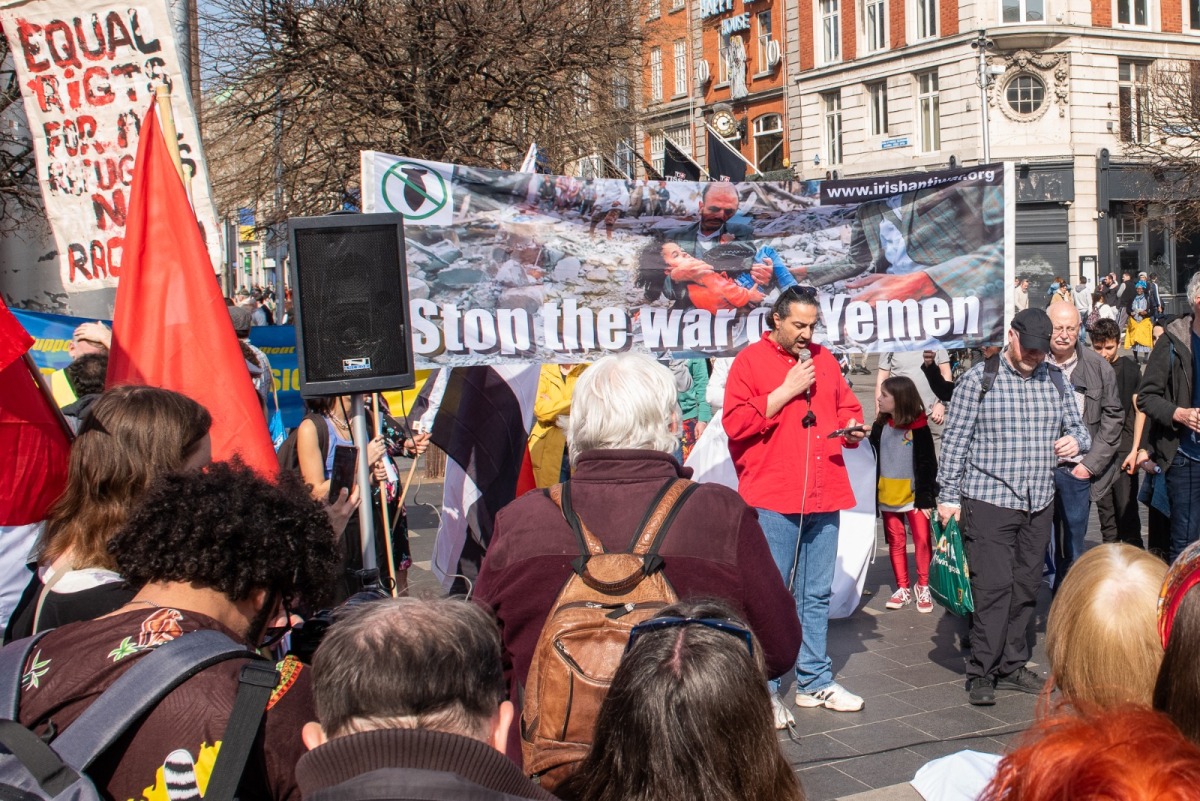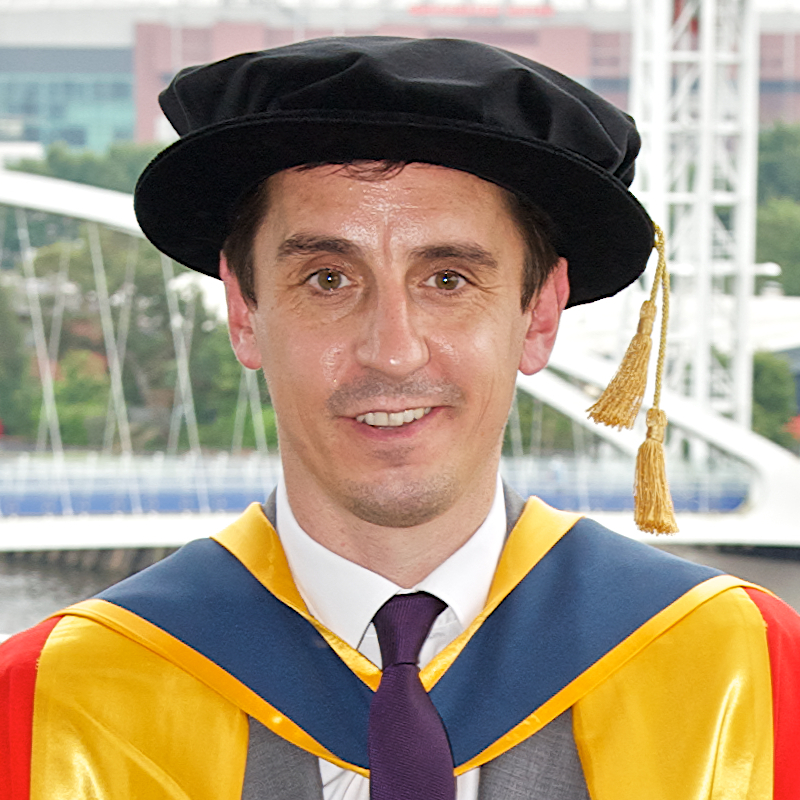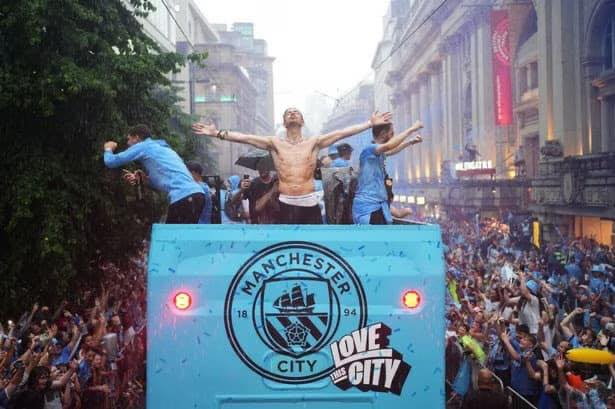Desmond Traynor continues his analysis of the financial and political morality of top flight English soccer, and attempts several rebuttals of the frequently voiced criticisms of Manchester City’s current success.
That was the attack. Here is the defence – bearing in mind that attack is often the best means of defence. (The middle ground will be contested later.) Let’s talk about the filthy lucre first, before moving on to the human rights issues – although the two are surely not unrelated, and are in fact inextricably linked.
Regarding the lavish wealth, there is the glaringly obvious riposte to the criticisms outlined above that City’s accelerated spending was merely conducted in an effort to catch up with clubs which had previously always spent heavily. From this perspective, Financial Fair Play rules – as instituted by both the European governing body U.E.F.A., and the Football Association governing the domestic English Premier League – were introduced solely as a form of protectionism, under pressure from the then so-called ‘elite’ clubs who felt their positions at the top table were under threat. So, cordon off gains made, syphon off profits, pull up the drawbridge, and stop others following. But this circling-of-the-prestigious-wagons method was also the reason for the foundation of the Premier League itself in 1992 (replacing the old Division 1), and the Champions League too in the same year (supplanting the old European Cup). Both competitions came into being to prevent the threat of breakaway movements (‘super leagues’) by the crème de la crème clubs, and to maximise their bargaining positions when the contracts for television coverage came up for renewal. The counterargument to any aspersions cast at the motives for FFP goes that the already established clubs generate their own income, rather than depending on investment, but this line of thinking does not stand up to much scrutiny. FFP punishes spending, not debt, because this is the best mechanism for the elite clubs to ‘pull up the ladder’. Besides which, since when are business owners not allowed to pump personal funds into their own businesses to keep them afloat – even if they are throwing good money after bad? Few people complain about Jack Walker ‘buying’ the Premiership title for Blackburn Rovers in 1995 – but that was before FFP reared its questionable head. As for those who say that City signed up to FFP and must abide by it like everyone else, one could ask: what alternative did we, or anyone else, have? It was a gun to the head, if you wanted to keep competing.
There is a trope in circulation that the Premier League is becoming, or has become, about as competitive as the Bundesliga, where Bayern Munich have won the title every year since Jesus was a boy. This ‘Bundesligafication’ states that nobody can cope with City’s ‘high ceiling’ (if in fact there is a ceiling at all), since they can ‘spend what they like’. Generally, it’s just not fair, we are constantly told. While some arguments carry a little more weight than others, this is one that does not convince for a minute. Since a Jurgen Klopp-inspired Dortmund carried off the German title in 2011-12 (ironically the same month Mancini delivered City’s first Premier League win since the fateful year of 1968), Bayern have been champions in the Bundesliga every single year. That is eleven consecutive titles. In the same period in England, Manchester United, Chelsea, Liverpool, Leicester and City have finished first. City have won seven of the twelve titles on offer and, admittedly, five of the last six, giving critics the chance to say this is the fast-moving ossification process of the domestic game. But Liverpool enjoyed similar dominance in the ’70s and early ’80s and were feted for it, while United in the ’90s and noughties did the same and were similarly acclaimed. If comparisons with the Bundesliga are valid, then it is worth looking east for a minute. Klopp, after all, managed in the top echelons in Germany for many years and was a serious challenger for honours at Borussia Dortmund between 2008 and 2015. Dortmund collected two titles in his time there and also reached the Champions League final. However, the club also sold Mario Gotze, Robert Lewandowki and Matts Hummels to Bayern, which would roughly correspond to City’s Director of Football Txiki Begiristain descending upon Anfield Road and splashing out for Mo Salah, Virgil van Dijk and Trent Alexander-Arnold. Those that tell us the Premier League is heading towards a closed shop may be right in a sense, but it has been on this trajectory since the mid-80s when what then constituted ‘the Big Five’ started their Machiavellian journey towards what we see today.
City have, on the whole, spent very wisely. Liverpool, United and Chelsea have spent massively for decades, but if anyone else dare flash the cash, they are ‘ruining football’. After City’s initial splurge to gain access to the higher echelons, the last five years have seen spending on players and wages broadly bottom out to meet that of their nearest competitors. The dreaded net spend puts City at the bottom of a league table currently being ‘won’ by neighbours United. Judicious spending has been the answer at the Etihad, not careless overspending. Whilst City avoided the car crashes of Sánchez, Maguire and Ronaldo, United piled in regardless. While City refused to pay over the odds for Kane and waited for Haaland, Liverpool shelled out nervously on Núñez. While City offloaded the inconsistent scoring exploits of Raheem Sterling and Gabriel Jesus, they settled on Haaland to do the job. Maybe we should be asking how Liverpool, United and Chelsea can get their respective transfer policies so disastrously wrong and how City can more often than not get it right, nine times out of ten spending less. That City’s massive wealth has been put to better use than Liverpool’s massive wealth, and Chelsea’s massive wealth has been spent almost as willy nilly as Manchester United’s massive wealth, is neither City’s fault nor the dastardly work of a tilted playing field, but rather the application of dedicated professionals at the top of their game, on and off the Etihad pitch. If we consider budgets, all the sides in what currently constitutes the top six should be competing, and competing hard. Throw in the biggest spenders of the lot, Manchester United, and you have – potentially – as fascinating and thrilling a title race as those of the early 1970s that so many people now nostalgically eulogise. If City continue to be serial title winners the clamour of feedback noise will steadily increase to fever pitch. Money will surely be the ruination of the sport, we will hear. Perhaps it has already done untold damage, but the road to this bleak scenario can be traced way back to 1986, or 1992, not to the arrival of City in the game’s corridors of power in 2008; and the money ruining professional football is being spent on players who fail, not those who succeed. Besides all of which, what City are doing may be different in extent, but it is not different in kind. You either go along with the global monetisation of soccer, appalling as it surely is, or you don’t. But you can’t back out simply because another club suddenly has more money than you do.

Malcolm Glazer (1928-2014).
A Merchandise Club Based on ‘History’
Erstwhile United manager Louis van Gaal (they’ve had six since Sir Alex Fergusson retired in May 2013 – including one ‘interim’, plus two ‘caretakers’ – all dispensations ending in tears) surely had it right when he asserted that his former employers were a merchandise club based on ‘history’. The owners, the six Glazer children of the late Malcolm Glazer, who bought the club outright in 2005, do not care about what happens on the pitch – or only insofar as it might effect revenue. Given that the club’s only discernible (business rather than footballing) policy is one of recruiting tactically ill-fitting star-name players to wear their jerseys, resulting in shirt sales remaining a marketable money spinner, this is hardly surprising. But such short-sightedness has come home to roost. Real Manchester United supporters know this, which is why they resurrected the original United club Newton Heath as a breakaway protest against the club they follow being run into the ground. Already one sees fewer red United jerseys around Dublin, unless one is a regular frequenter of charity shops, their fans being too ashamed to parade them in public because of the ridicule they will invite. Most of the capital used by Glazer to purchase Manchester United came in the form of loans – rather than from his own funds – the majority of which were secured against the club’s assets in what is termed a ‘leveraged buyout’, incurring interest payments of over £60 million per annum. The remainder came in the form of payment-in-kind loans, which were later sold to hedge funds. It has been estimated that the Glazer buyout has cost the club more than £1 billion in interest and other expenses over the years. At the end of 2019, the club had a net debt of nearly £400 million.
All the while, United were lashing out exorbitant sums for players who failed to do the business on the field after they arrived at the Theatre of Dreams. The flops include a club-record £89m for Paul Pogba, £85.5m for Antony, £75m for Romelu Lukaku, £73m for Jadon Sancho, £59.7m for Angel Di Maria, £44.5m for Anthony Martial and £40m for Donny van de Beek. (See John Brewin’s ‘From Sánchez to Sancho: Manchester United’s Lost Boys in decade of waste’. The Guardian, 6/10/2023). In fact, Manchester United have the highest transfer spend in world football since 2017, at £765m net. Sir Jim Ratcliffe, who has just bought a 25% stake in the club for 1.3 billion, is eager to find out how the organisation has blown £1.4 billion in the transfer market since 2013, for such little return. Their trophy haul since they last won the League in that year, Fergusson’s last, is: one FA Cup in 2016; one Europa League in 2017; and two League/EFL Cups in 2017 and 2023 – but most importantly, no title.
When John Aldridge played for Liverpool in their heyday, every summer Liverpool would buy a couple of the best players around and pay what were, for the time, huge wages. Judging from his Sunday World columns, it seems Aldridge thinks this practice was okay then, but somehow not fair now. As for saying they could afford it because they were serial Champions, Liverpool were in fact on the brink of administration due to years of reckless spending and mismanagement, and were only rescued when Boston’s Fenway Sports Group purchased the club in 2010. Since then, they have not been shy about making record signings, which include: Alisson Becker (£65m from Roma in 2018) – then the most expensive goalkeeper in Premiership history; Virgil Van Dijk (£75m from Southampton, also in 2018) – then the most expensive defender in Premiership history; and Darwin Nuñez (£85.36m from Benfica in 2022) – the most expensive signing in the club’s history.
United and Liverpool fans complain about their respective owners – United’s about the debt and lack of investment in infrastructure like their increasingly dilapidated stadium, Very Old Trafford; Liverpool’s about perceived parsimony in the transfer market (only really in comparison with City’s funds) – and want them out, yet they decry City’s owners, who run the project very well, and not exclusively for the purpose of financial profit. It is enough to make you suspect that jealousy is the chief motive for their rabid dislike of City, rather than any sudden faux concern for fairness, equality, level playing pitches, or human rights. It would seem that the glib rejoinder frequently mumbled among City fans is correct: ‘they hate us ’cuz they ain’t us’.
Which brings us to the other main counterargument often voiced in opposition to City’s success: that there is a fundamental difference between clubs being owned by private individuals and companies (with finite resources), and those owned by a state (with infinite resources), especially when that state is using the club as a public relations exercise to camouflage its dodgy human rights record – a practice dubbed ‘sportswashing’. The flawed logic runs something like this: in a liberal democracy – such as the United States purports to be – private individuals are allowed to own private property, whereas in an elective monarchy like the U.A.E., theoretically the royal family owns everything. Therefore, private individuals in the United States are not directly responsible for the policies and actions of their government on the world stage, whereas the Abu Dhabi United Group (itself a private equity company and the official owners of Manchester City FC, which insists it is separate from the Abu Dhabi government – even if it is owned by Sheikh Mansour bin Zayed Al Nahyan, member of the Abu Dhabi Royal Family and Minister of Presidential Affairs for the U.A.E.) is directly responsible for all the policies and actions of its country. To me, this is merely the semantics of ownership. Does it mean that no tax-paying U.S. private citizen is ultimately responsible for any of their country’s misdeeds; or, indeed, that no U.S. citizen is above and beyond personal reproach? Conversely, does it implicate every U.A.E. national in responsibility for their country’s offences? Besides all of which, the resources of Abu Dhabi may be vast, but they are not infinite.
Construction workers at the Burj Dubai.
Human Rights Abuses
As to the human rights abuses themselves, they concern both the Emirates’ domestic and foreign policies. Internally, between 80 to 90 percent of the U.A.E.’s over nine million population consists of foreign nationals – most of whom are low-waged, semi-skilled workers from Africa, Asia, and elsewhere in the Middle East – so the country’s economy is heavily dependent on migrant workers.
According to Human Rights Watch, their wages are low, payments are made infrequently, and living, working and sanitary conditions are poor. Passports are routinely confiscated, either at the airport on arrival, or subsequently by the employers. The workers inevitably fall into situations of debt bondage and find themselves compelled to accept the terms and conditions imposed on them by contracts they signed without fully understanding them. This is particularly common among construction, domestic, and lower-level service workers. The U.A.E.’s labour laws exclude domestic workers from protections, and they face a range of abuses, from unpaid wages, confinement to the house, and workdays of up to twenty-one hours, to physical and sexual assault by employers. The ‘kafala’ sponsorship system ties migrant workers’ visas to their employers, preventing them from changing or leaving employers without permission. Those who do leave without permission face punishment for ‘absconding’, including fines, arrest, detention, and deportation, all without any due process guarantees. Many low-paid migrant workers are acutely vulnerable to forced labour. At the same time, Human Rights Watch also reports that ‘Scores of activists, academics, and lawyers are serving lengthy sentences in U.A.E. prisons, following unfair trials on vague and broad charges that violate their rights to free expression and association.’ Add to this laws which heavily discriminate against women and LGBT people, and you have what is regarded under western eyes as a toxic cocktail which should be roundly called out.
But, and it’s a big BUT… (to anyone who will take me to task here for the crime of ‘whataboutery’: 90% of philosophical discourse depends on ‘What about?’; the other 10% originates in ‘What if?’) …it can be argued that we in the West are in no position to throw stones, considering the glasshouses in which we live. Here are three examples, chosen relatively at random.
1) U.A.E. has many western accomplices. According to the Harvard International Review (29/07/2022): ‘Altrad, the French multinational construction company, is only one of the many Western establishments that seem to forget the laws and regulations of the countries they are based in once they start operations abroad in the UAE. Altrad is joined by New York University (NYU), Hilton, the Louvre, Guggenheim, and the British Museum in conducting alleged malpractice against migrant workers’. On this score, it might interest those occupying the high moral ground, especially Liverpool FC fans, to know that Fenway Sports Group’s third biggest shareholder RedBird are in business partnerships with Abu Dhabi.
2) In the Republic of Ireland, we operate a system of Direct Provision for asylum seekers who are waiting for the outcome of their applications for refugee status. It has been criticised by human rights organisations as illegal, inhuman and degrading. The main bone of contention is the length of time people spend in direct provision, with the Irish Human Rights and Equality Commission calling the delays faced by asylum applicants as ‘systemic and pernicious’. The accommodation centres are run by private sector hospitality and catering companies under contract with the Irish government, and so living conditions and food provided are basic, so that these suppliers can maximise profits. Other problems include: not having permission to work until you have been waiting for six months for the result of your application; a paltry living allowance of €38.80 for each adult and €29.80 for each child, plus meals; overcrowding and consequent health concerns; and stringent sign-in and sign-out regulations and regular room searches by management and staff. People are robbed not only of agency, but privacy. Plans were underway to introduce a new system in 2024, whereby applicants for international protection will stay in a ‘reception and integration centre’ for no more than four months, with new centres run by non-profit organisations. However, this initiative looks set to be shelved in light of continuing accommodation pressures exacerbated by the influx of refugees from the Russian invasion of Ukraine. Given that direct provision was originally introduced as an emergency measure in 1999, these changes are long overdue. But, as Masha Gessen wrote in The New Yorker (‘Ireland’s Strange, Cruel System for Asylum Seekers’, 4/06/2019), ‘There are worse places than Ireland to be a person in need of international protection. The U.S. is one such place. In this country, people are routinely incarcerated in so-called detention centers.’
3) The U.S. is also not a great place to be black, or from a disadvantaged background. The mass incarceration of African-Americans today is a continuum of America’s original sins of chattel slavery, which fostered ideas of white supremacy and black inferiority. Economic gain was the fundamental underpinning of slavery. In many ways, the contemporary prison industrial complex has similarly become an economic venture, with the emergence of private prisons in many states. The prison industry did not become a form of compelled, low-cost labour overnight: prison labour’s historical roots show how officials intended to use prison labour to counteract the elimination of slave labour and rebuild economies across the South. Slavery was an essential industry in early America. Slave labour allowed landowners and businessmen to expand their enterprises without paying workers. After the Civil War, that free labour source dried up. But many states were entrenched in an economic model that relied on free labour. Prisons offered a convenient and official way to maintain segregation, use free labour to drive industry, and largely eliminate black citizens from the American labour market. The expansion of the U.S. inmate population has resulted in economic profit and political influence for private prisons and other companies that build and maintain such facilities, and supply goods and services to government prison agencies. The U.S. continues to lead the world in per capita incarceration of its citizenry. The reach of the criminal justice system on American society is vast, as 70m Americans, representing one in three adults, have a criminal record of some description. There are circa 3m people in prison in the U.S. today, far outpacing population growth and crime. Between 1980 and 2015, the number of people incarcerated increased from roughly 500,000 to 2.2. million. Despite making up close to 5% of the global population, the U.S. has nearly 25% of the world’s prison population. 32% of the U.S. population is represented by African-Americans and Hispanics, compared to 56% of the U.S. incarcerated population being represented by African-Americans and Hispanics. In 2014, African-Americans constituted 2.3 million, or 34%, of the total 6.8 million correctional population. African-Americans are incarcerated at more than five times the rate of whites. The imprisonment rate for African-American women is twice that of white women. 7% of adults in the U.S. are under correctional supervision. That equates to one out of every 37 adults in the United States. In 2012 alone, the United States spent nearly $81 billion on corrections. Since 1991 the rate of violent crime in the United States has fallen by about 20%, while the number of people in prison or jail has risen by 50%. If African-Americans and Hispanics were incarcerated at the same rates as whites, prison and jail populations would decline by almost 40%. If this is not institutionalised racism, what is? At the same time, the death penalty continues to flourish in the U.S., both at the federal and state levels, and especially in southern states. Muslim countries are regularly castigated in the west for the severity of their horrific punishments of those found guilty of contravening their laws; but can you think of many methods of execution more barbaric than the electric chair?

Ibrahim Hashem addressing the crowd at the Irish anti-war movement on the 26/03/22 in front of the GPO.
Yemen
Externally, the U.A.E. is criticised for its part in the Saudi-led coalition waging an ongoing war against the Houthi-dominated government in Yemen. However, in truth, the hostilities in the Arabian Peninsula between the Houthis in Sana’a and the Saudi opposition are part of a complex proxy war, essentially between Saudi Arabia and Iran, but with several other actors. Ironically, in this geopolitical situation, the Houthi rebels have links to Iran, while the Saudi coalition of which U.A.E. was a part, has U.S. logistical and intelligence support, and occasional direct military intervention. Criticising the U.A.E.’s participation in this Saudi-led coalition is akin to castigating Iran for its support of Palestine, which is an understandable counterweight to the U.S.’s backing and bankrolling of apartheid Israel, especially given the fact that the U.S. and Saudi are ostensible allies. I do not pretend to be an expert in this knotty arrangement of alliances, but I’d wager neither are the likes of Miguel Delaney. Besides which, in another instance of my ‘whataboutery’, are we being asked to conveniently forget that the United States has been involved in foreign interventions throughout its history – both through overt outright invasion and covert destabilising of democratically elected governments – too numerous to detail here? By the broadest definition of military intervention (including non-combative C.I.A. ‘psy ops’), the U.S. has engaged in nearly 400 such operations between 1776 and 2023, with half of these occurring since 1950, and over a quarter in the post-Cold War period. Of course, John Henry of the Fenway Sports Group or the Glazer kids are not in any way directly responsible for these overt and covert operations, and their ownership of soccer clubs is strictly business, and nothing to do with sportswashing.
As outlined above, Delaney has been amongst the most vocal in bringing up the U.A.E.’s human rights record when highlighting the unfairness of City’s ongoing successes. It might be revealing to ask him if he feels conflicted by the fact that he is employed by Alexander Lebedev, formerly of the K.G.B., and Sultan Muhammad Abuljadayel, currently of Saudi Arabia – both major shareholders in the London Independent? It could be asserted that his conflicts-of-interest make his biased opinions extremely suspect. He regurgitates this geo-political guff every time City hand some team he favours (Liverpool? Real Madrid?) a hiding, or lift a fresh trophy. He spouts his sanctimonious codswallop while supporting Generalissimo Franco’s state sponsored Real Madrid, which is highly ironic, since Real are the original ‘sportswashing’ project, if ever there was one. Yet hypocrites like Delaney or Ken Early have few qualms about travelling to Qatar to cover the World Cup – because they are ‘only doing their job’. They attend, and then express their reservations – whereas if they had an iota of moral courage between them, they would have boycotted the whole affair.
Fact: Ireland receives over €8 billion per annum in investment from Saudi, Israel and U.A.E. – but boo Manchester City for benefiting from such deals. Manchester United’s and Liverpool’s owners have made their billions from the fruits of North American free market capitalism – which never hurt anyone, right? At least ‘sportswashing’ has the virtue of the commitment of the owners to entertaining, class football, and to the ongoing development of the club which produces it. Also, if the project at City is being conducted as just a soft power PR campaign, as detractors allege, it appears to be singularly unsuccessful in achieving its intention: fans of rival clubs (or, more accurately, our closest rivals) still condemn us. How can something be ‘sportswashing’ when every time Abu Dhabi, Qatar or Saudi Arabia are mentioned in the sports media, the coverage is uniformly negative? Are there opinion polls which indicate that the public attitude to these countries has improved due to ownership of football clubs, or hosting of World Cups? Critics behave as though ‘oil money’ is somehow more reprehensible than the rewards of American neoliberal capitalism. Yet I’d sooner take my chances with oil-rich Arab sheiks than rapacious, profit-driven American (late) capitalists. Such is the relentlessness of the demonisation of these Middle Eastern states’ investment in football among the Irish soccer media mafia that it is enough to raise suspicions that the root cause of it is simply good old-fashioned Islamophobia.

Neville receiving an honorary doctorate from the University of Salford in 2014.
Gary Neville
I disliked Gary Neville as a Manchester United player (for perhaps entirely subjective reasons), but have come to respect him as a pundit. His pronouncements in an interview last year (FourFourTwo, September 16, 2022) are noteworthy because they are refreshingly different from the typical anti-City jibes, particularly prevalent in Ireland but found across the water as well. Also, they affirm the arguments I have rehearsed above. (Like most people, I like it when people agree with me – especially when the agreement comes from an unlikely source.) Highlights include:
I have more problems with American investment owners than with nation states. Nation states don’t want to mess with the format or rules or ethos of the game. American owners want to change the rules and structure of the whole game.
American investment funds take and don’t give. They’re not involved in urban regeneration like what happened in East Manchester.
Financial Fair Play was brought in out of self-interest and greed, to prevent other clubs emerging as competitive forces. There needs to be a space for Chelsea, Manchester City, Leicester and others to compete and win, otherwise it would have been Liverpool, Arsenal, and Manchester United at the top for ninety-nine years.
Admittedly, it is hard to paint your club’s fanbase in Ireland as an oppressed and beleaguered minority, when you are so cash and asset rich, and are ‘winning everything’. How can you be leading a revolutionary charge when you are so patently nouveau riche? (On the other hand, rarely winning anything must be soothed somewhat by being part of a ‘moral majority’, when every second person you meet follows the same club as you. If misery – or a sense of injustice – loves company, then there is plenty of it to be found in this country.) But it wasn’t always thus. I was there when we were shit. Personally, I’m proud to be the football club supporting equivalent of a working class Lotto winner. What is more, it would take a propagandistic fascist show of strength along the lines of the 1936 Berlin Olympics as hosted by Nazi Germany to make me disavow my commitment to Manchester City as an abstract entity, simply because of whoever its owners might happen to be at a given time. One set of monied scoundrels – if such they be – is as good or as bad as another, and adopting a sliding scale of moral turpitude is to embark on a slippery slope – and it is foolhardy trying to get to the top, or slide to the bottom, of it. And I haven’t even got started on ventilating the argument that even if City’s current owners are an entirely unscrupulous bunch of cheats, great art – such as City are now producing – has always depended on generous patronage. The Medici and Borgia families, including the Popes they spawned, were not famed for having ‘clean hands’; but without them there would have been no funding for the Italian Renaissance. Que Anton Karas’ iconic The Third Man soundtrack theme tune, while Orson Welles delivers Harry Lime’s ‘Swiss cuckoo clocks’ speech.




